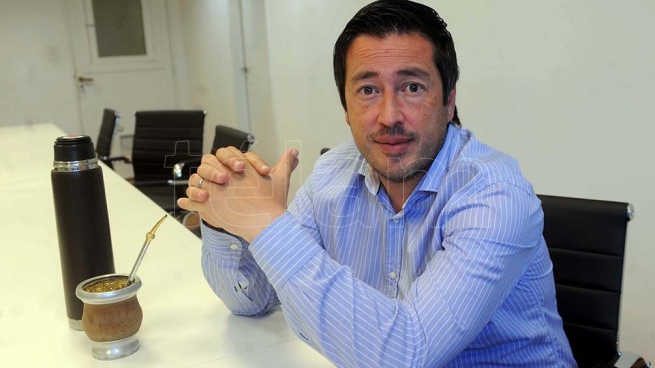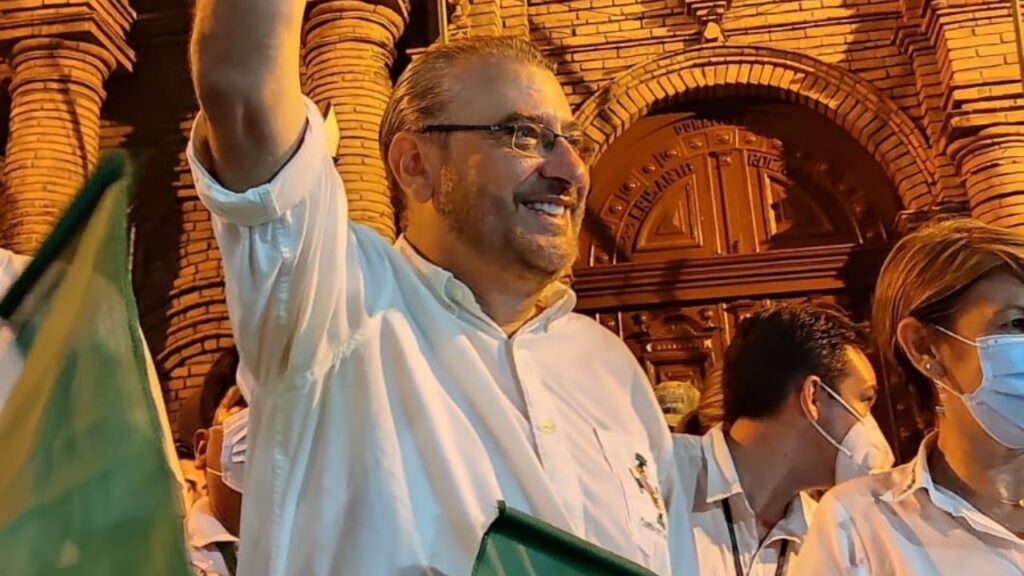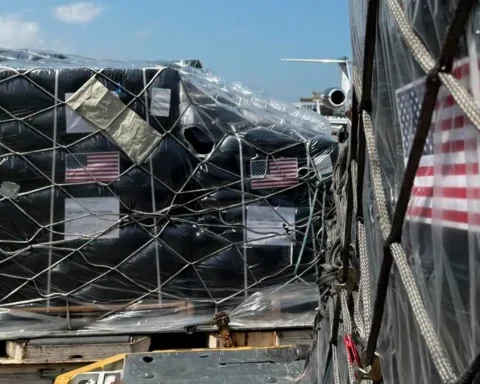The Infrastructure Minister of Buenos Aires, Leonardo Nardinihighlighted this Saturday that in the province of Buenos Aires there is “an unseen deployment of works in the municipalities” and stated that the Government seeks to “reactivate the economy and that this spills over into society so that people have another expectation.”
In an interview with Télam, in La Plata, the former mayor of Malvinas Argentinas advanced the road, infrastructure and hydraulic works that the Executive Power will develop this year, with an investment of 130,000 million pesos, and rejected that the agreement with the International Monetary Fund will imply a cut in this matter.
– Télam: What are the goals for the area?
– Leonardo Nardini: Give continuity to the work plan that was planned at the beginning of the administration and that the pandemic slowed down because it put other priorities on the agenda, such as taking care of health and strengthening the hospital system. We started to streamline those things that were perhaps cut short not because they did not want to but because of all the inconveniences that the pandemic caused.
– T.: What priority projects are you working on?
– LN: In these two years, the investment made in public works by the Government throughout the province was very important: more than 8% of the budget was allocated. Progress was made with instruments already known as the Municipal Infrastructure Fund, but also with others such as the Preimba, agreements with municipalities or for large-scale works that are tendered by the Ministry of Infrastructure.
– T.: In what state is the work of the Salado River?
– LN: The continuity of the work of Salado, which is a historical work, made it possible to advance almost 30% in almost 2 years of the pandemic, while María Eugenia Vidal did not reach 15% in 4 years without a pandemic. Now the preliminary agreement has been signed with the European Investment Bank to be able to continue with the fifth stage and to be able to finish it. This will allow the recovery of 2 million productive hectares and benefit another 8 million hectares that are no longer flooded when there is a flood. This is very important because it implies strengthening the productive sector. It is said or thought that we do not have policies from the provincial State for the countryside and that the other way around, since Axel’s decision is to promote the entire sector, understanding that it is part of the heart of the Buenos Aires province.

– T.: Are you going to move forward with road works and work in schools?
– LN: School works depend on the Undersecretary of School Infrastructure, but I can tell you that there have been many more repairs and works of new schools and extensions than in the 4 years of the previous administration. An important boost was given considering that it was one of Axel’s priorities to invest in school infrastructure. With regard to large roads, the work that had been paralyzed -an emblem for the province- was the widening and duplication of the roadway of Route 11 and 56, for what is the ring of what is the Atlantic corridor did with pandemic in record time. We finish it before the season so that people can travel more safely, so that it arrives earlier. It has to do with thinking about the well-being of Buenos Aires residents who go to the Atlantic coast and boosting the tourist tourism sector, which had a very bad time with the pandemic issue. Before the season we enabled the section of the 56 and today the fruits of that are being seen: millions of tourists who went to the Atlantic corridor passed by. Now work is being done on the complements: resurfacing, road demarcation and road prevention issues that help reduce traffic incidents.
– T.: How do you work to strengthen connectivity in the interior?
– LN: We are with the projects regarding the Cereal Route, so that it can move forward. It is something that is long overdue. We have also committed the financing to give continuity to the doubling of the road, which you recently requested, of Route 41 between San Andrés de Giles and San Antonio de Areco, up to Mercedes and to be able to get to Navarro with a resurfacing.
– T.: Does the fact that you have been mayor facilitate the link with the communal chiefs?
– LN: It happens to speak the same language. We go to both government supporters and opponents with the truth of what we can do and what we can’t. We are carrying out works of sanitation, services, hydraulics, connectivity of internal streets or resurfacing of avenues that are often very important in cities or towns.
– T.: In what state are the Houses of the Province, intended to create single dependencies of the provincial State in each of the 135 municipalities and stop renting different premises?
– LN: There are 80 projects, some have already started and others are in the bidding or award process. It has to do with the decentralization of the services of the province in the territory and also with dignifying the workers who are often scattered in different places. In addition, the province is going to stop spending on rent for many offices. It is something that pays for itself over time.

– T.: How much money will the province invest in works this year?
– LN: Approximately 130,000 million pesos.
– T.: Does the agreement with the IMF not imply cuts in public works?
– LN: The President said that he is not going to apply an adjustment in public works. Public works not only transform and signify, but also generate employment and pour into the internal economy through the purchase of materials, through direct and indirect labor. That ends up being a virtuous circle. In times of pandemic, if the employability rates did not fall so much, it was because of public works. That has to be a constant going forward, because all progress is progress and people see that work is being done. Today we have a work deployment in the 135 municipalities of the Buenos Aires province never seen before. We are executing the budget as it should be and that will be reflected in each of the territories.
– T.: What is going to happen this year with the issue of energy prices and tariffs, ABSA and Aubasa?
– LN: Axel’s decision is to follow a scheme in line with what the Nation does. Minister Gabriel Katopodis enabled an increase of 26% through the national government, and we join that measure. The same is going to happen in the event that it occurs in what are basic services or energy. Kicillof is aware of the delicate situation that society is experiencing and he is not going to do anything crazy to complicate people’s daily lives. On the contrary, he is going to try to make the necessary efforts so that things are gradual and people can bank him.

















